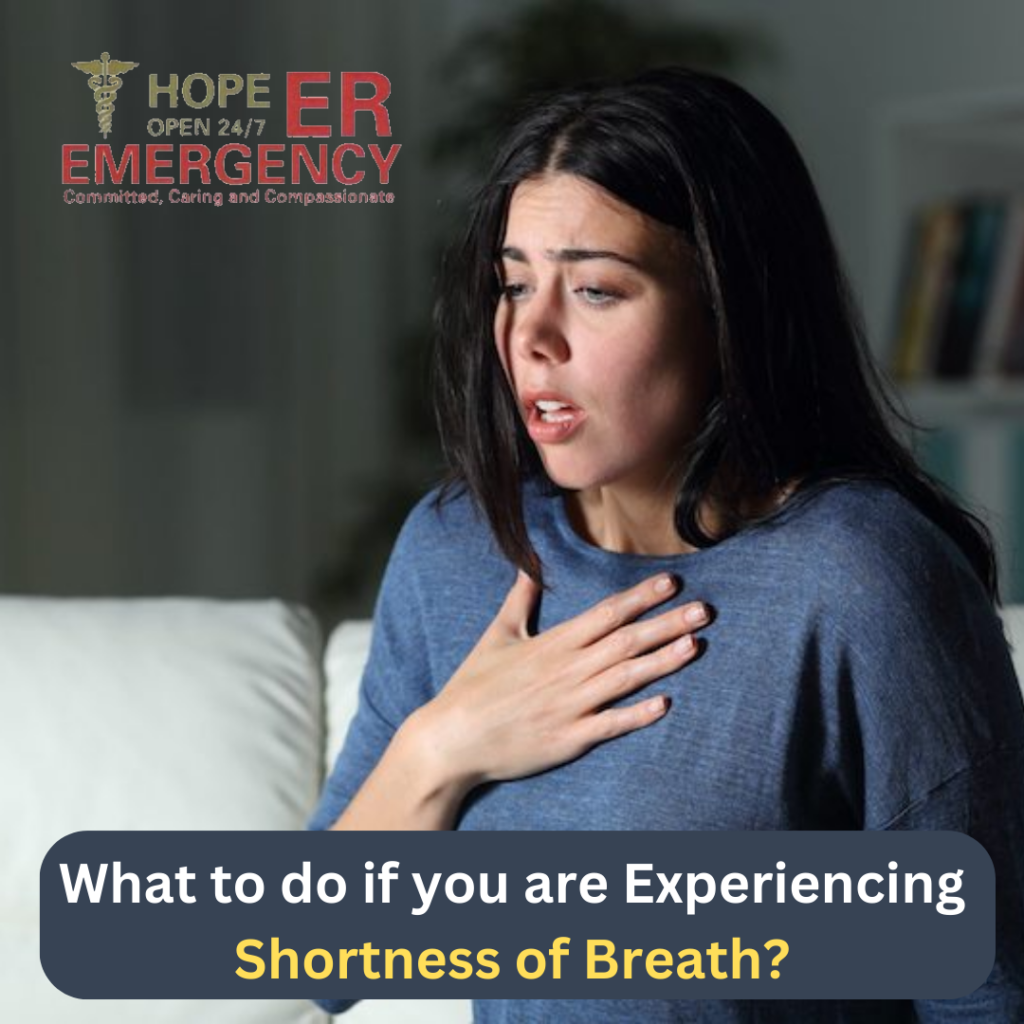Shortness of breath, also known as dyspnea, can have various causes, ranging from mild to severe. It’s essential to note that shortness of breath can be a symptom of an underlying medical condition, and it’s important to seek medical attention if you experience persistent or severe symptoms. Here are some common causes of shortness of breath:
Respiratory Infections: Infections such as pneumonia, bronchitis, or other respiratory tract infections can lead to shortness of breath.
Allergies: Allergic reactions, particularly those affecting the respiratory system (like asthma), can cause difficulty breathing.
Asthma: A chronic condition characterized by inflammation and narrowing of the airways, leading to difficulty breathing.
Chronic Obstructive Pulmonary Disease (COPD): This includes conditions such as chronic bronchitis and emphysema, which can result in long-term breathing difficulties.
Heart Conditions: Conditions such as heart failure, coronary artery disease, or heart attack can lead to shortness of breath.
Anemia: A low red blood cell count can reduce the amount of oxygen that your blood carries, leading to shortness of breath.
Obesity: Excess body weight can strain the respiratory system, making it more difficult to breathe.
Pulmonary Embolism: A blood clot in the lungs can cause sudden shortness of breath and chest pain.
Pneumothorax: This occurs when air leaks into the space between the lungs and chest wall, leading to lung collapse and difficulty breathing.
Anxiety and Stress: Emotional factors can contribute to shortness of breath, especially during panic attacks or high-stress situations.
Environmental Factors: Exposure to high altitudes, extreme temperatures, or air pollution can contribute to breathing difficulties.
Neuromuscular Conditions: Conditions affecting the nerves and muscles involved in breathing can lead to shortness of breath.
Interstitial Lung Disease: A group of lung disorders that cause inflammation and scarring of the lung tissue, resulting in breathing difficulties.
Trauma: Injuries to the chest or lungs, such as rib fractures or lung contusions, can cause shortness of breath.
Whatever be the reason of shortness of breath, one should quickly seek help quickly. However, while waiting for help or if you’re dealing with mild shortness of breath, here are a few general suggestions:
Stay Calm: Try to stay calm and avoid panicking, as stress can exacerbate breathing difficulties.
Change Position: Sit down and try to relax. If you’re lying down, consider propping yourself up with pillows to ease breathing.
Loosen Tight Clothing: If your clothing is tight, loosen it to allow for easier breathing.
Use a Fan: Directing a fan towards your face may help improve air circulation and provide some relief.
Practice Deep Breathing: If you can, practice slow and deep breathing. Inhale slowly through your nose, hold for a few seconds, and then exhale slowly through pursed lips.
Pursed Lip Breathing: Pursed lip breathing can help slow down your breathing and make each breath more effective. Inhale through your nose for two counts and exhale through pursed lips for four counts.
Focus on Breathing Techniques: Explore different breathing techniques, such as diaphragmatic breathing or pursed lip breathing, which can help you relax and control your breath.
If you are looking for an Emergency Room near Lufkin in Texas then Hope ER is a fine choice that you can opt for. Hope ER is available at your beck and call 24/7 with no need to take prior appointments.
For more help, visit www.hopeer911.com or call (936) 899 7243.
Our address is 2111 East Denman Avenue, Lufkin TX 75901. Let us make your care our concern.
